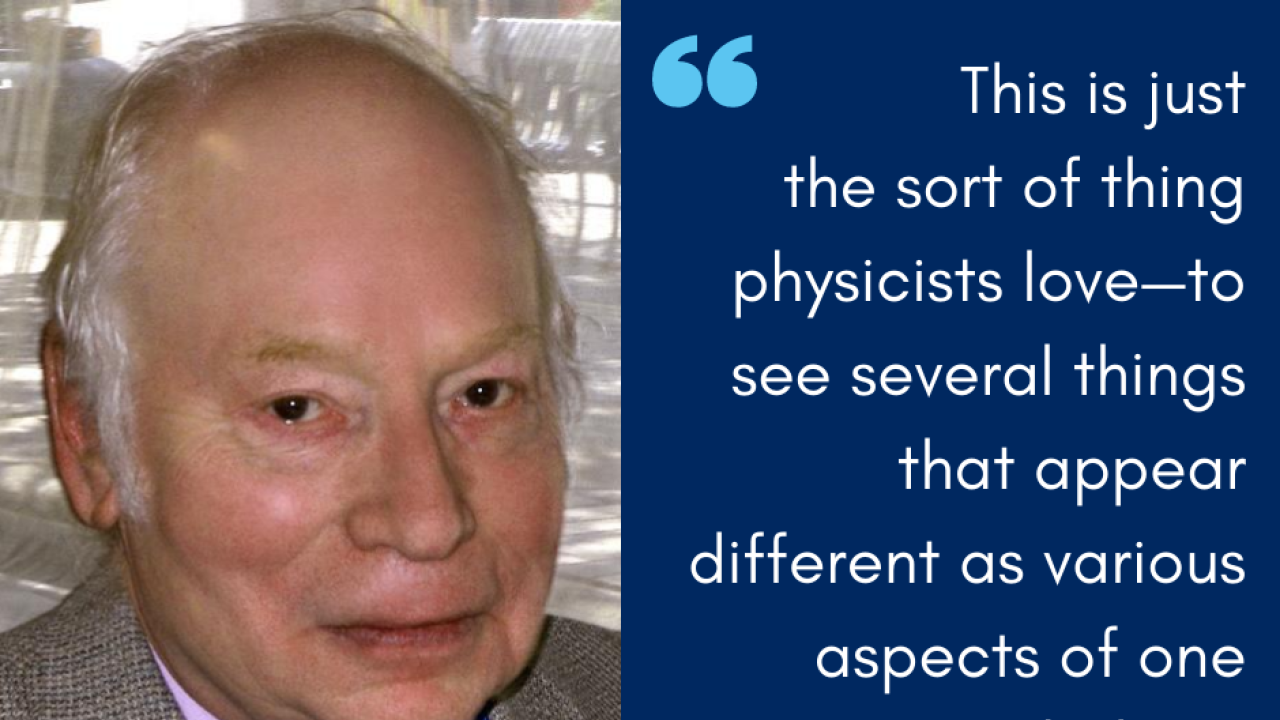
Why be a scientist? Nearly every scientist has a different answer and a different inspiration, drawn from varied careers, outlooks, and experiences. For its 40th anniversary in 2004, ICTP published the book One Hundred Reasons to be a Scientist, a collection of 100 essays from many eminent physicists and mathematicians with a connection to ICTP. The book is a source of many insights from the lives and careers of scientists, including Mildred Dresselhaus, Freeman Dyson, Vera Rubin, and Francis K.A. Allotey. The authors discuss what led them to study science, the difficulties they encountered and overcame, and their passions and hopes for the future.
We are revisiting twenty of these stories highlighting one of them every week, sharing inspirations from the essays and showcasing the words of these great scientists. During the uncertainty of the current global pandemic, the words will hopefully help researchers feel less alone in their scientific path.
We are presenting this week the story of Steven Weinberg, an American theoretical physicist, best known for his research on elementary particles and physical cosmology. He was awarded the Nobel Prize in Physics in 1979 for his contributions with Abdus Salam and Sheldon Glashow to the unification of the weak force and electromagnetic interaction between elementary particles.
In his essay, Weinberg reflects on the process that led him to his best-known work on the weak interaction, the “force that is responsible, among other things, for the first step in the chain of nuclear reactions that produces the heat of the sun”. You can read it here.
If you want to learn more about Steven Weinberg and his research, here you can watch his ICTP Special Colloquium "Reminiscences of the Standard Model", livestreamed in 2017. Here you can also watch Professor Weinberg presenting "Glimpses of a Hidden World" at the Nobel Conference 50 in 2014.
If you are interested in learning about 99 more scientists and what inspired them, you can find the whole book in electronic format for free download on ICTP’s Marie Curie Library website, in English, Italian and Urdu.
Previous stories:
















